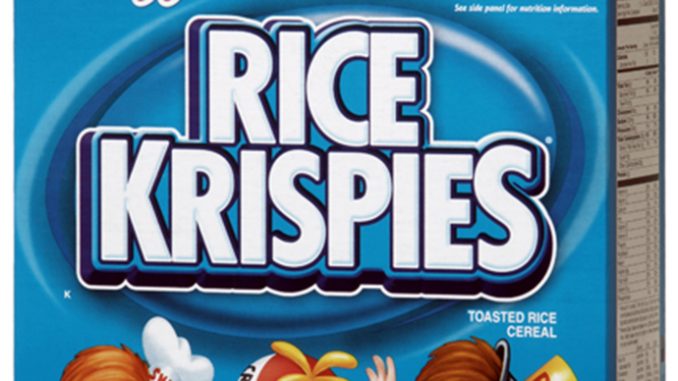
Research conducted by Channel 4’s Dispatches program and the Institute for Global Food Security, found more than half of Britains popular rice products, including cereals, baby cereal and snack foods contain huge levels of arsenic. Health watchdogs insist there is no immediate risk from the quantities involved but some medical experts say long term exposure can harm child development and cause cancer in later life.
The Mirror reports Researchers claim Kellogg’s Rice Krispies, Boots Baby organic rice cakes and Organix First Wholegrain Baby Rice are among goods with levels above new proposed safety limits.

BYPASS THE CENSORS
Sign up to get unfiltered news delivered straight to your inbox.
You can unsubscribe any time. By subscribing you agree to our Terms of Use
Latest Video
The products contain inorganic arsenic – the naturally occurring and most toxic form of the poison found in many types of rice.
While health watchdogs insist there is no “immediate” risk from the tiny quantities involved – some medical experts say long term exposure can harm child development and cause cancer in later life.
And the worried Food Standards Agency, which already warns parents off feeding children rice milk, has called for new maximum levels on all rice products on sale in the UK. Tests at Queen’s University in Belfast have shown found nearly HALF of all the rice cakes, breakfast cereals and baby rice examined contained levels of arsenic above the FSA’s proposed “safety” limits.
Prof Andy Meharg, an arsenic expert, told a Channel 4 Dispatches probe into the findings: “The scale is quite shocking.”
Rice is the only major crop grown in flooded conditions, where it absorbs large amounts of inorganic arsenic found in soil minerals. According to the European Food Standards Authority (EFSA), rice typically contains ten times more arsenic than other foods, adds RT
The EU has also proposed to limit arsenic in foods for adults to 200 parts per billion (ppb). Currently some foods such as red rice from France contain 310 ppb.
The Rice Association, which represents the rice industry in the UK, said it welcomed the EU’s initiative to limit arsenic, but said it was “confident” there were no health risks associated with regular rice consumption in Britain, and that most of its produce abided by proposed EU arsenic limits.
However, some researchers have said the EU proposals are still too high, and that more importance was being placed on the rice trade than human health.
“The European Union is going to set standards for arsenic levels in baby rice at 100 parts per billion. To my estimation that is far too high. It should be at least half that,” food safety expert Professor Andy Meharg told Dispatches.
“The limits are set so as not to disrupt the rice trade rather than on the risk to human health” he added.
New guidelines for inorganic arsenic in rice, was set out by the UN’s Food and Agriculture Organization and the World Health Organization earlier this year.


